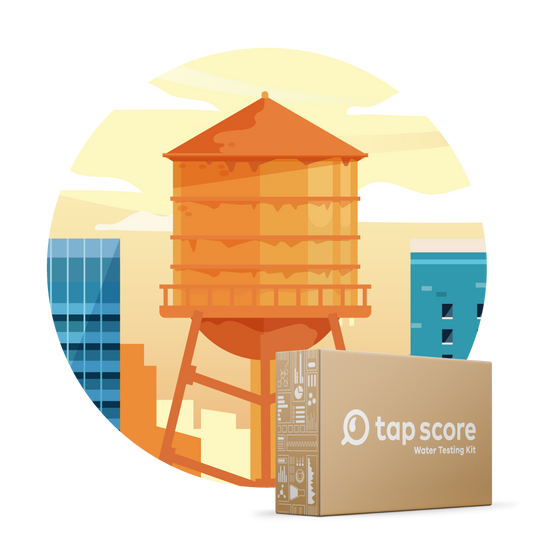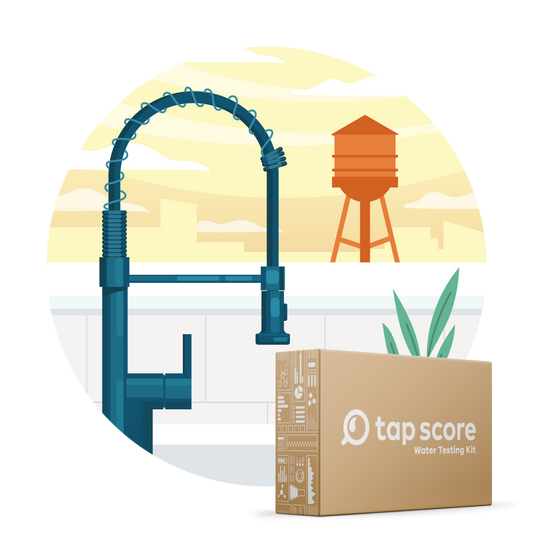
Wastewater Epidemiology: Real-time Public Health Research
Our blog is written by real experts— not AI. Each guide is carefully reviewed and updated based on the latest research. Plus, with no affiliate links, you can count on unbiased insights you can trust.
How Sewage Can Tell Us About Community Health and Behavior
Every day, more than 30 billion gallons of wastewater passes through treatment plants in the United States. While all of that urine, feces, and other waste might seem like something you want to steer clear of–some people are jumping at the chance to get closer.
We turned to Dr. Carsten Prasse, an environmental chemist and expert on environmental contaminants and their fate, as well as their effects in the environment, to learn about this emerging field and what’s got scientists so interested. He told us:
“Wastewater epidemiology is a non-invasive approach can be used to assess the use of illicit drugs in communities by detecting these compounds and their human metabolites in wastewater.”
In other words, wastewater is a goldmine of information about behavior that is oftentimes misrepresented or difficult to obtain via traditional means of gathering such information (i.e. surveys).
What is Wastewater Epidemiology and What Can It Tell Us About Our Health?
Epidemiology is the study of patterns and effects of diseases on populations. Wastewater epidemiology is a new sub-field dedicated to better understand community health. It provides insight into behavioral choices (like the use of certain medications or products) and chemical exposures (like pesticides that are present in our food), but it can also serve as an indicator of emergent diseases.
Trace amounts of almost everything we consume are excreted–either unchanged or as a mixture of metabolites. Metabolites are the products left when your body processes chemicals. Our excretions (urine and feces) ultimately end up in a sewer network. Because researchers know factors such as the rate a body excretes particular drugs, they are able to reverse calculate the estimated drug use in specific populations. Through these calculations, scientists can track a range of behaviors with just a test tube of sewer water. Wastewater epidemiology thus provides objective, real-time information about the xenobiotics (i.e. man made chemicals) ingested by a population–and in turn can help scientists track:
- Drug use–both prescription and illicit drugs
- Emerging contaminants from personal care products
- Pathogens
- Chemical exposure
- Markers for certain illnesses
Pros and Cons of Wastewater Epidemiology
Wastewater epidemiology has several advantages as an information source. A major pro is that it’s anonymous—yet it’s able to capture a little bit of data from a wide cross-section of the population. Depending on the wastewater treatment facility size, upwards of a million people could be represented in a single day. Additionally, screening for drugs that pass through the body and enter the sewer system may be one of the fastest, most accurate ways to assess a community’s drug-related behavior.
Dr. Prasse highlighted that wastewater epidemiology might provide insight into the chemicals that we are exposed to through tap water, food, and products we use. For scientists using wastewater epidemiology to study exposure he said that “the important part is to monitor specific biomarkers in the water (such as metabolites of pesticides or pharmaceuticals that are only formed in the human body). By analyzing these biomarkers you can ensure that humans have been exposed and they are not originating from other sources.”
Finally, wastewater epidemiology offers (almost) immediate results. This is very different than typical surveys and data collection that often have substantial lag times before information is made available.
While the study of sewage is inherently anonymous (as everyone’s excreta gets mixed together in wastewater), there are still concerns about privacy. An individual’s anonymity is generally not an issue, but how it affects smaller areas of the city can be of concern. Certain areas fear stigmatization if a non-zero amount of any drug shows up in their wastewater–particularly since wastewater can help track illicit drug use. Researchers need to ensure that their research is ethically conducted and does not endanger vulnerable groups – like students, schools, or prisoners.
When asked whether wastewater epidemiology will become a widespread approach, Dr. Prasse said:
“If it will become a widespread approach will depend on a variety of different factors, in particular related to the development of sampling techniques and high-throughput analytical methods. So far, it is really time and money intensive if you want to get beyond the scale of just monitoring the influent of wastewater treatment plants (e.g. to study sub-communities of a population). For the health assessment of communities, as shown for illicit drugs, wastewater epidemiology is very promising though.”
As research continues to emerge, wastewater epidemiology could grow to be a very effective, albeit smelly, way to improve public health monitoring.
Article Sources
▾https://engineering.jhu.edu/ehe/faculty/carsten-prasse/
http://pubs.acs.org/doi/abs/10.1021/es201124j
https://www.ncbi.nlm.nih.gov/pubmed/22974737
https://www.smithsonianmag.com/science-nature/sewage-epidemiology-not-just-a-pipe-dream-18048991/
https://www.popsci.com/city-health-sewage
https://www.emcdda.europa.eu/publications/html/pods/waste-water-analysis_en
https://pubmed.ncbi.nlm.nih.gov/22417286/
http://news.mit.edu/2015/real-time-urban-epidemiology-from-wastewater-1102







